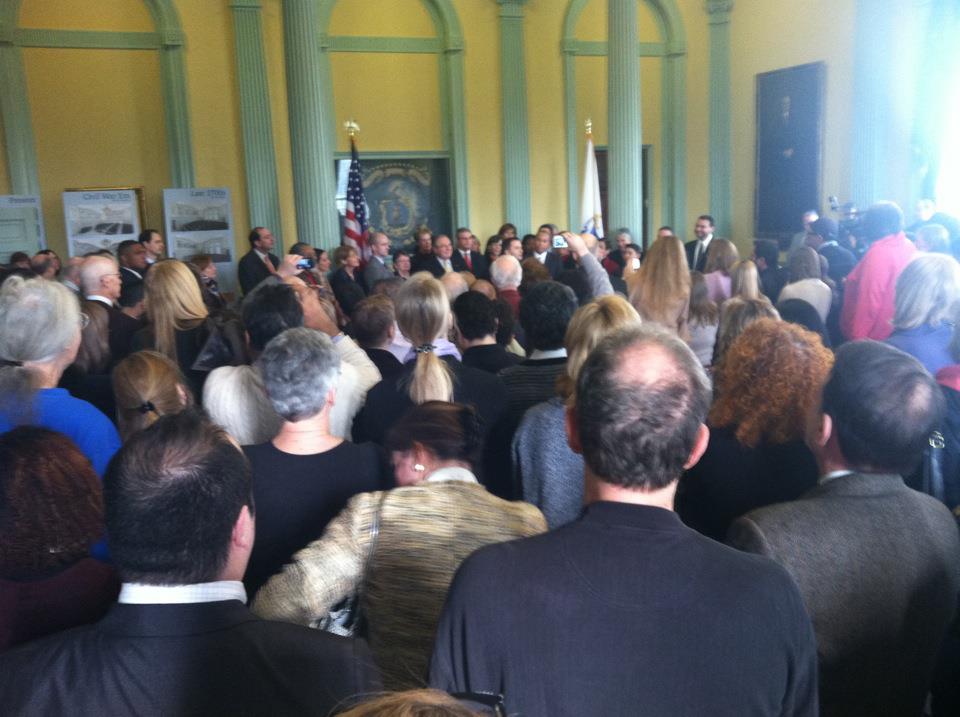
The Senate Reading Room, where today’s signing took place, was packed with observers, a joyful crowd savoring the celebration. Lawmakers were clearly also buoyed, as their inspiring comments demonstrated. “You have no idea how beautiful you are as you stand here beaming,” said state Auditor Suzanne Bump. “Remember that you are powerful,” offered Senator Brian Downing, followed by fellow Senator Sonia Chang Diaz: “it's days like this that remind us why we ran for office... Thank you for reminding us [legislators] of our own power, in addition to showing us your power.” Representative Byron Rushing, who joined Representative Carl Sciortino in co-sponsoring the bill from its very first days, declared, “this hasn't just been a discussion of gender identity but of the identity of Massachusetts, and hopefully it will become a discussion of our national identity.”
In his Episcopal Church context, as a longtime member of the Diocese of Massachusetts’ deputation to General Convention– Deputy Rushing inspires us to pose that question of church identity. Faith communities can ask, and indeed are asking, what do we stand for as people of our respective traditions? In the Episcopal Church we might well ask—and have asked at the 2009 General Convention and various diocesan conventions before it– what does it mean to declare in our baptismal covenant that we strive for justice and respect the dignity of every human being? In 2009 the Convention passed resolutions putting The Episcopal Church on record in support of transgender equality in the civic sphere (D012 and C048), and pledging within our ecclesial life to make administrative forms accessible to gender identities beyond male and female and to protect transgender lay employees from discrimination (D090 and D032, respectively). As our collective conversation continues, we might allow the varied lives of transgender as well as intersex people – communities and individuals whose lives are textured not simply by complex embodiments of gender but also by race, class, sexuality and ability-- to deepen our understanding of the human person. How do we interpret and live out the mystery of being created in the image and likeness of God?
At the signing this morning, I was reminded of a startling moment in the November 15 debate that I watched on my laptop. Representative Sciortino was speaking movingly in support of the legislation when he began to describe the Transgender Day of Remembrance (TDOR) held at the Cathedral Church of St. Paul the year before. He made a point of detailing the apology that my bishop, the Right Rev. M. Thomas Shaw, had offered on behalf of Christians who had condemned trans people and in the process had “misrepresented God to” us. The apology had been stunning enough in its own right, but to hear it reported, in some sense repeated, on the floor of the House of Representatives, was positively astounding. As I sat there dumbfounded—actually, calling out to my partner to come see this!-- receiving these words afresh in an unimagined context, I was reminded of a strangely parallel moment at General Convention three years earlier. The Convention had managed to pass D012, the Trans Civil Rights Resolution, on the same day that the Massachusetts Judiciary Committee was holding a hearing on its own Trans Equality legislation—an earlier version of what has now finally passed. As a team of trans people and allies worked toward the resolution’s passage in Anaheim, a fellow Episcopalian in Massachusetts learned about it (on his laptop, while waiting to testify in the stultifying heat) and shared it in the course of his testimony three thousand miles away. The Episcopal Church supports this bill, he was proud to be able to say. It all came full circle.
Also on my mind today were the words (viewable here as blurry video), offered by Bishop Shaw at this year’s TDOR. Speaking at the end of the program, he welcomed us to the Cathedral and then offered a word of gratitude that felt almost like a meditation: “because of your honesty, because of your integrity, because of the way you so pursue the truth of your identity, you tell me about the nature of God, because that is how I think God is. And so I thank all of you not only for the way that you enlighten my understanding of God but how much you preach to the rest of the world about courage, and about bravery, and about truth and about perseverance of identity. We owe all of you a huge debt of gratitude. Thank you.”
I got the sense people were both honored and stunned by his words, working to digest and contemplate them— I know I was. His comments about perseverance in pursuit of the truth of identity—language I had not heard him use before— reminded me of words from the Gospel of John that I first really took in at a middle school summer Bible camp: “you shall know the truth and the truth shall make you free” (Jn 8:32).
From this chair, at the end of this day, looking out at the striking vista of falling snow, it strikes me how the process of knowing the truth and being freed by it is both lifelong and communal—by turns grueling and wondrous, and inextricably relational, even as it is distinctive to each person.
An important truth about the MA trans equality law is that it is far from perfect: it does not include protections in public accommodations—access to public gender segregated spaces. Everyone was resolved to come back and get that done. And as I think about how far we have come, how much more free we are than we were just a few short months ago, I know that what we need more than anything else is the will, the support, the conviction to keep pursuing the truth.
- The Rev'd Dr. Cameron Partridge
Cross-posted at Walking with Integrity

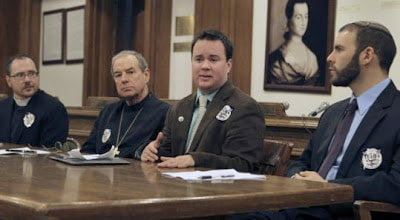
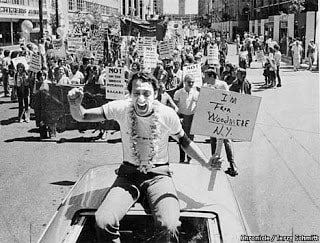
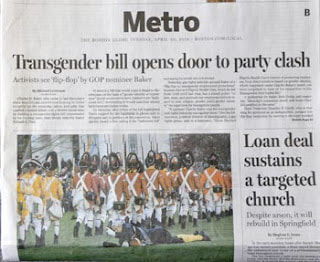
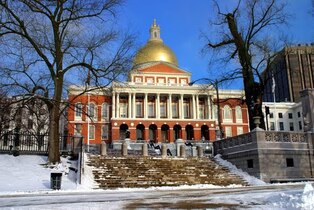
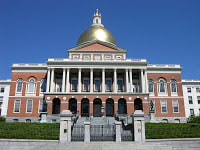
 RSS Feed
RSS Feed